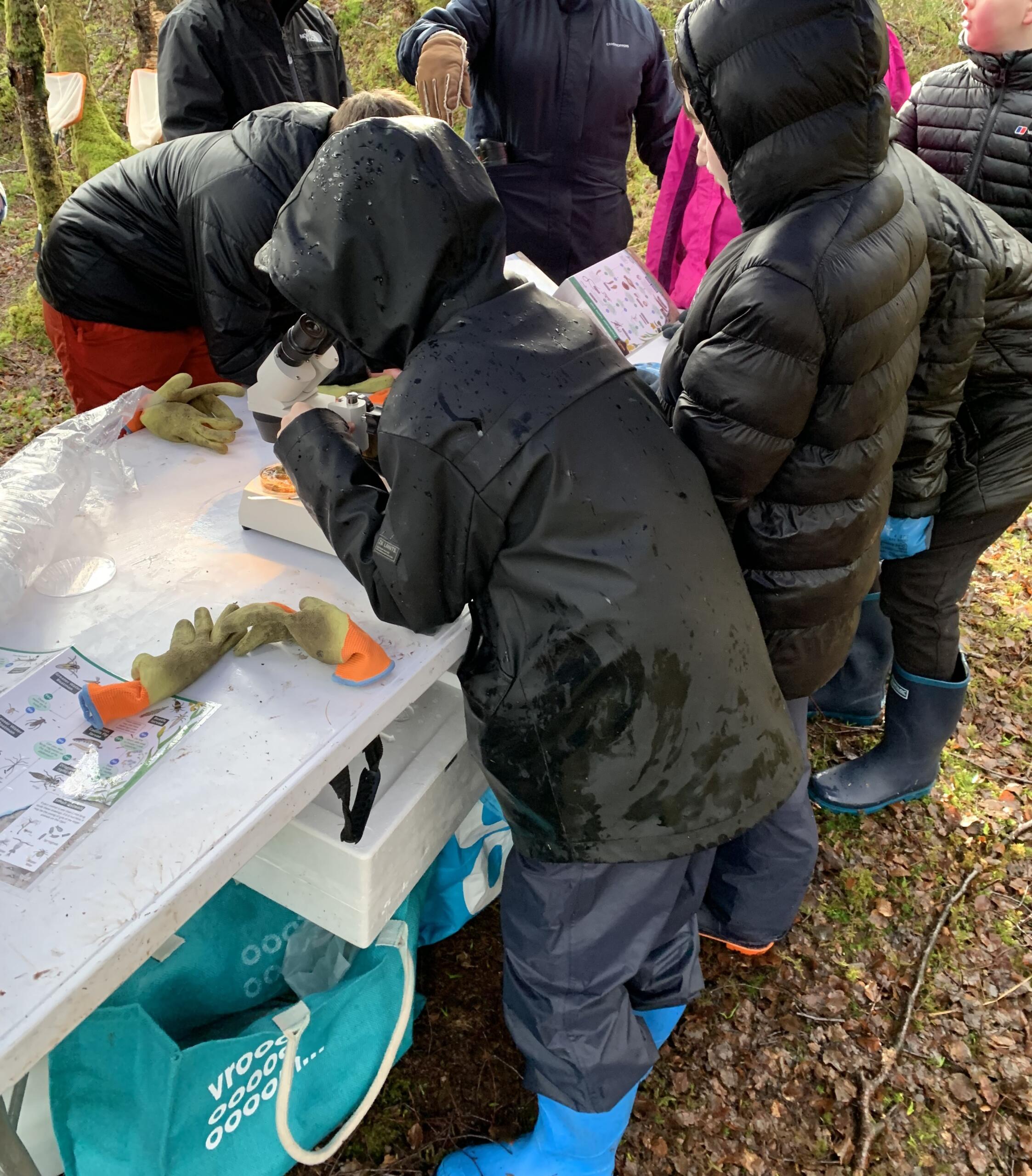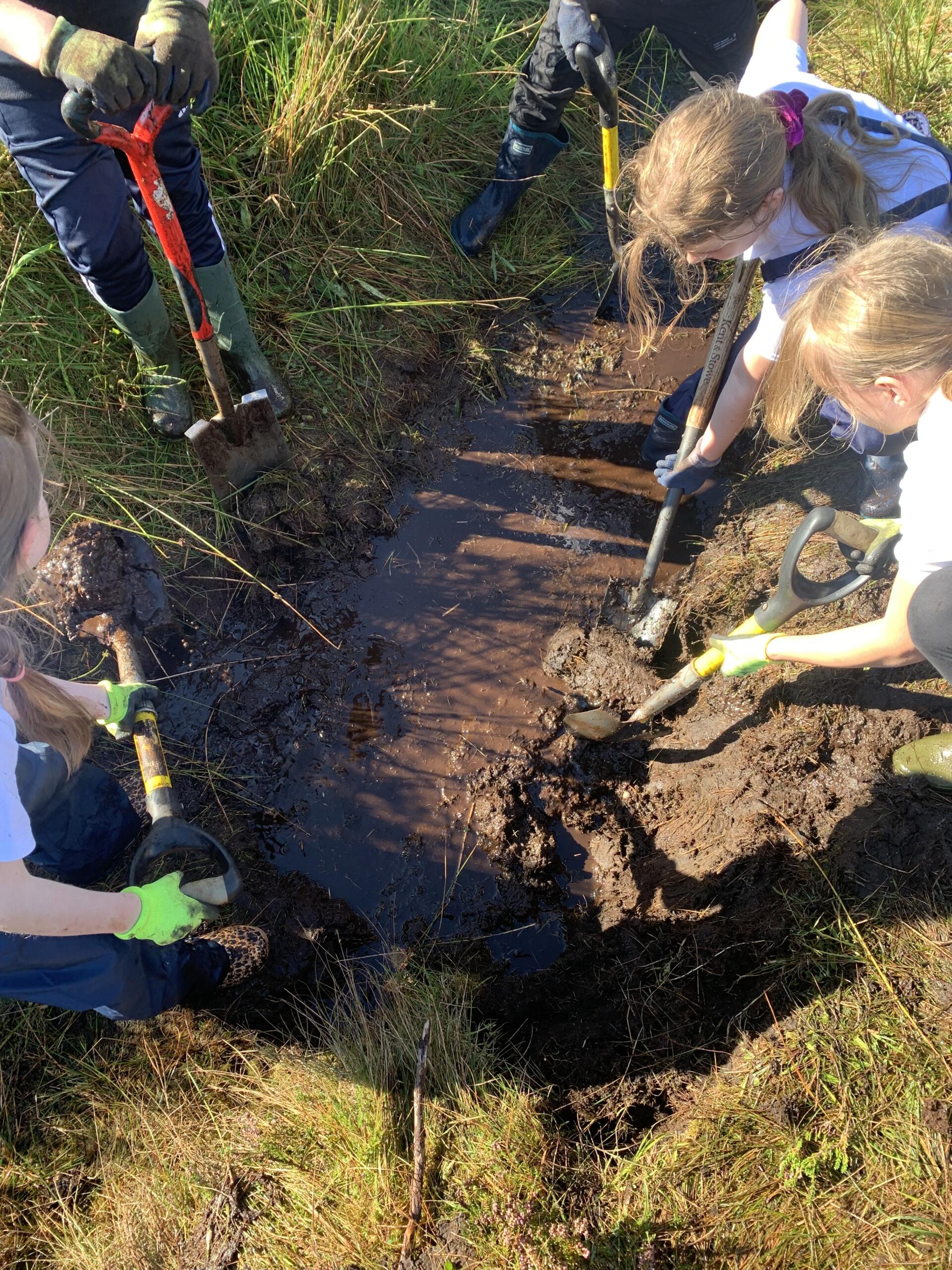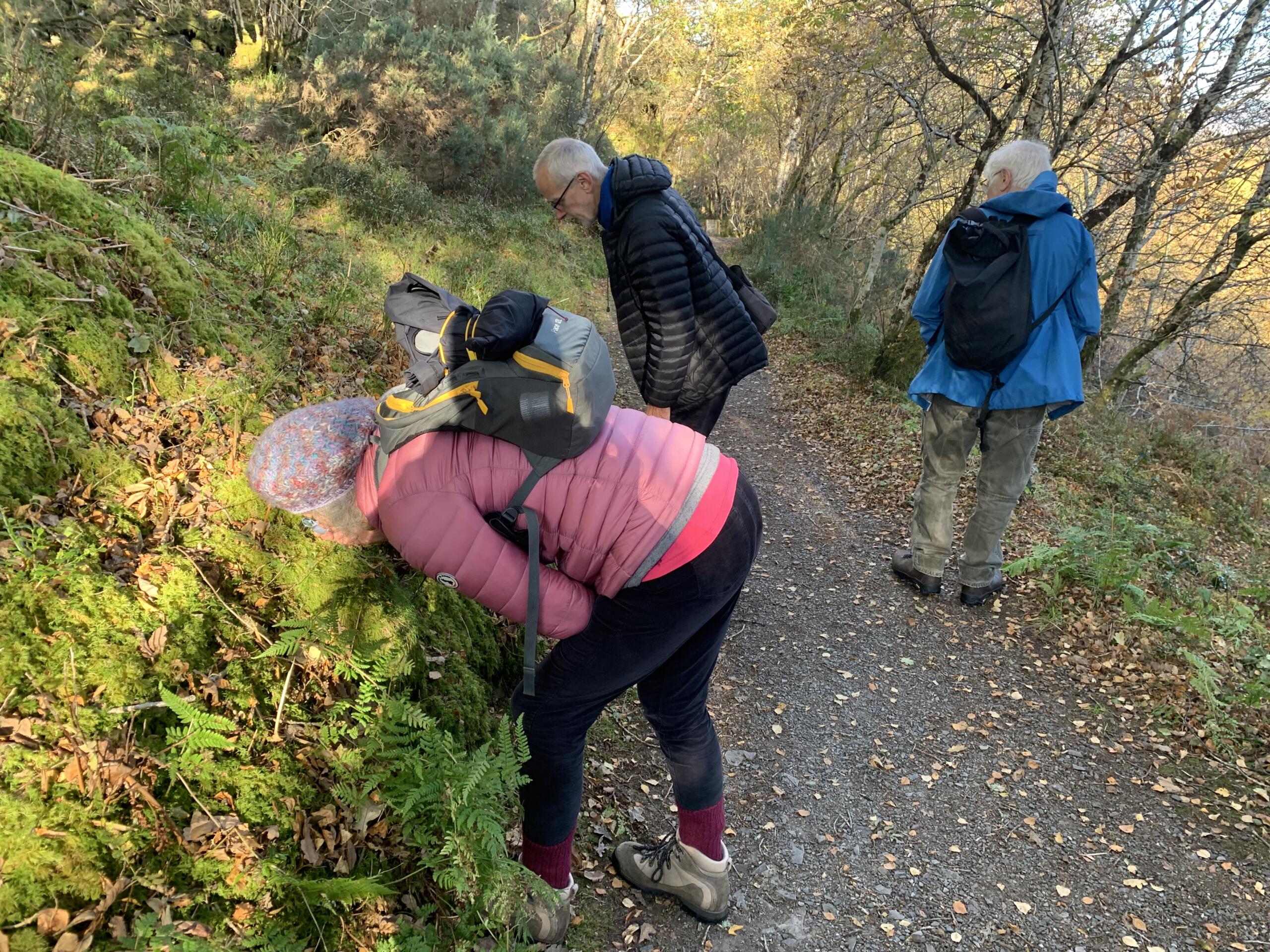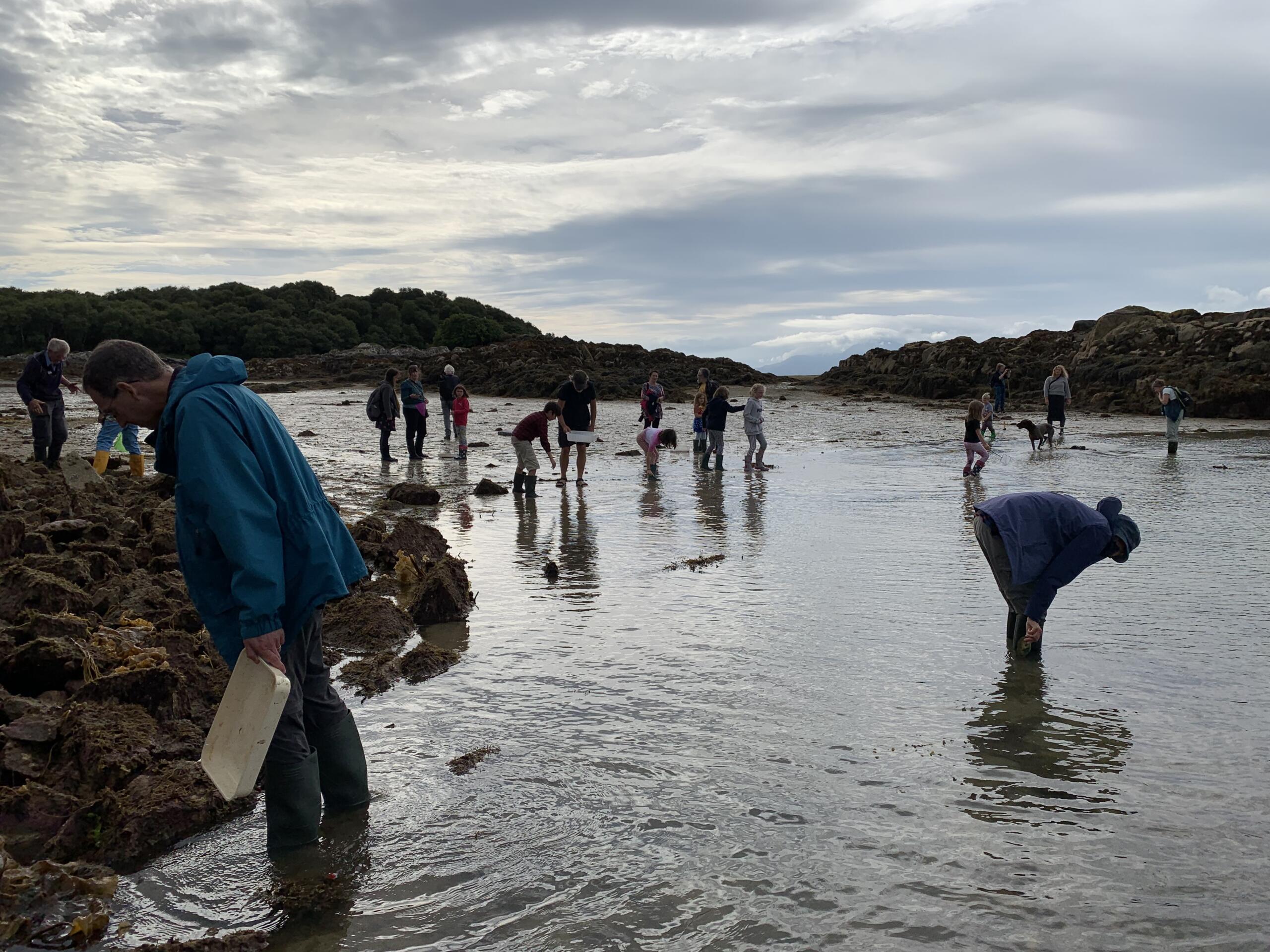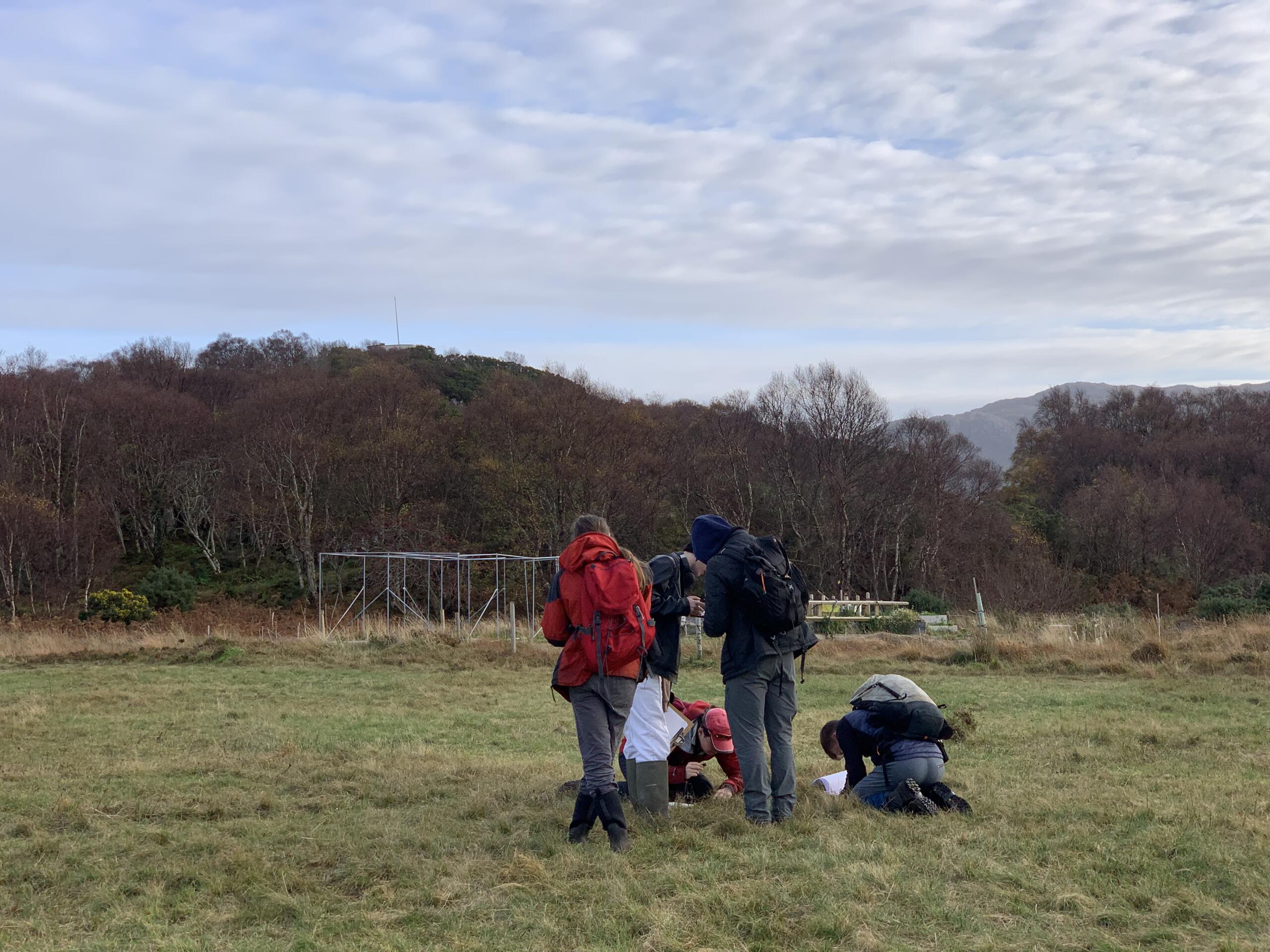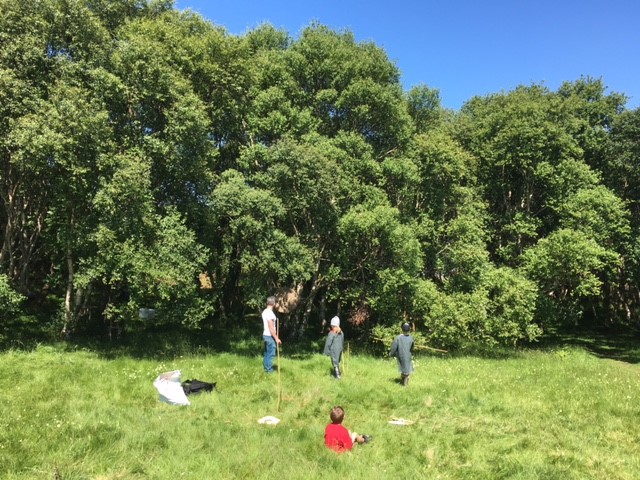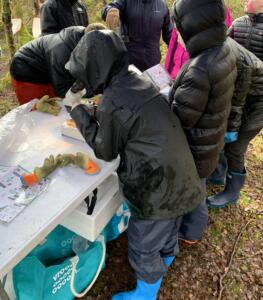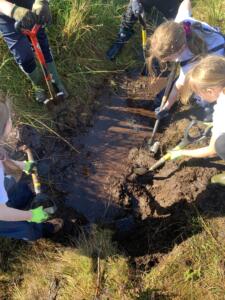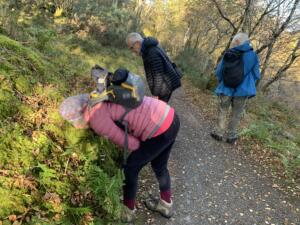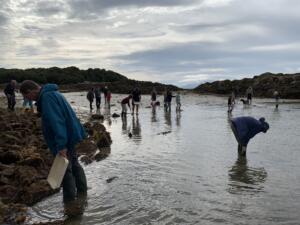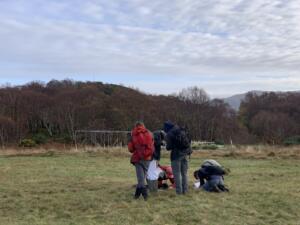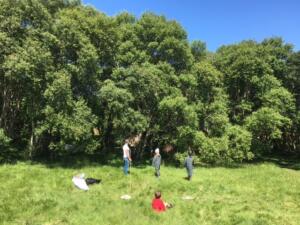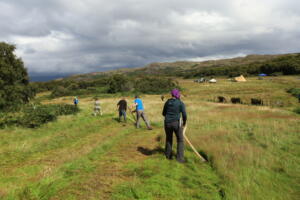
Grants
Empowering communities for nature
Plock pilot
£15,000 awarded
Grantee: Kyle & Lochalsh Community Trust
Duration: January – October 2024
Background
The social and economic challenges faced by many rural communities across the Highlands and Islands, such as youth depopulation and loss of indigenous knowledge, are linked to the ecological degradation of the land. Tackling the biodiversity crisis requires a bottom-up approach, integrating local skills and knowledge relating to land management and restoration.
The Project
The Kyle & Lochalsh Community Trust (KLCT) aim to achieve sustainable regeneration of their local community through ownership and management of assets. They took ‘The Plock’, a 60-acre site on the edge of town, into community ownership in 2019, and since then have been managing the site and improving habitats through the Plock Ranger, funded by the National Lottery Heritage Fund (NLHF). The Plock is part of the Wester Ross Biosphere, “a place where people live and actively work alongside their surroundings to promote a legacy, rich in both natural and cultural heritage”, and contains a diverse array of ecosystems, habitats, and rare species, particularly ferns and mosses.
With NLHF funding ending in December 2023, there was a need for interim support before applying again to the NLHF in 2024. There was also a desire locally for more environmental education and citizen science, prompting the idea for ‘Plock Pilot’ – a 9-month pilot scheme to turn the Plock into an outdoor ‘school of the environment’. Thus, in November 2023, HIEF awarded KLCT a grant of £15,000 to pilot a ‘school of the environment’.

Community scythe on the Plock.
Project Activities
Through continuing to employ a ranger, KLCT continued managing the site, and improving access through new path developments.
A range of educational and citizen science opportunities were delivered for local people. This included several visits from local primary schools, who spent sessions exploring and learning about the Plock’s biodiversity. The UHI college also undertook trips to the Plock as part of its outdoor leadership course, focusing on species identification.
A series of weekly and monthly activities took place, such as volunteering work parties, health and nature walks, wildlife focus weeks, and training activities aimed at educating and inspiring locals. The ranger led several scything courses over the year, which grew in popularity and extended to places further afield, such as Caithness and Oban.
Data has also been gathered to understand the importance of Plock in the Highland landscape and UK context through bryophyte surveys, flowering plants records, and a mammal survey. It was discovered that the Plock has ‘near threatened’ Northern Emerald Dragonfly Nymphs, as well as a rare fern called ‘Dryopteris pseudocomplexa’.
Most significantly, the 6-month pilot was a success in securing further funding, with the National Lottery Heritage Fund awarding a £234,170 grant for the project to evolve. More here – Plock College of the Environment and Traditional Skills.
Educational sessions on the Plock

